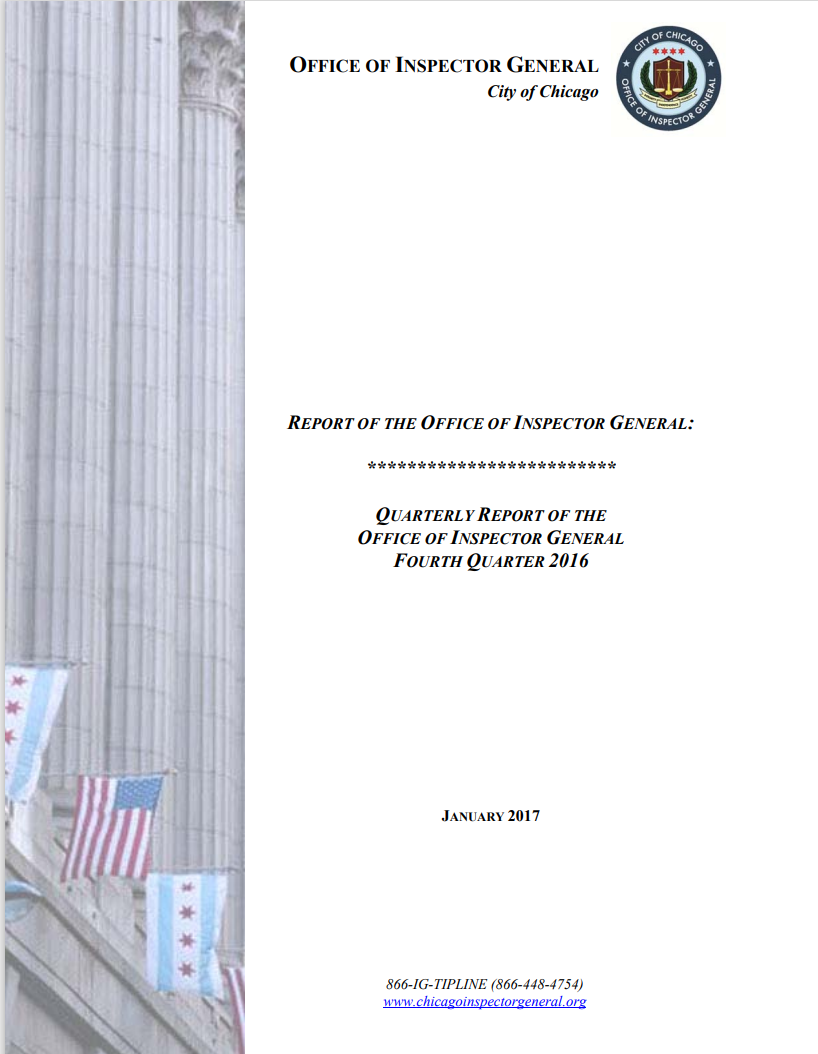OIG Fourth Quarter Report 2016
January 18, 2017
Summary
This quarterly report provides an overview of the operations of the Office of Inspector General (OIG) during the period from October 1, 2016, through December 31, 2016.
Executive Summary
Subscribe to the OIG Bulletin to get notified about future publications.

